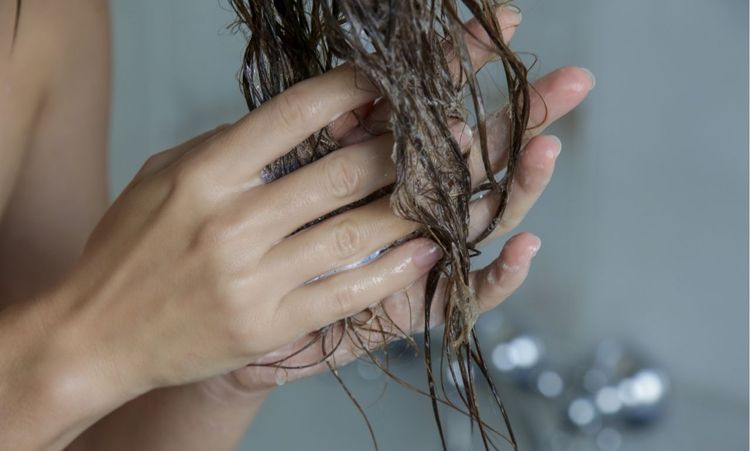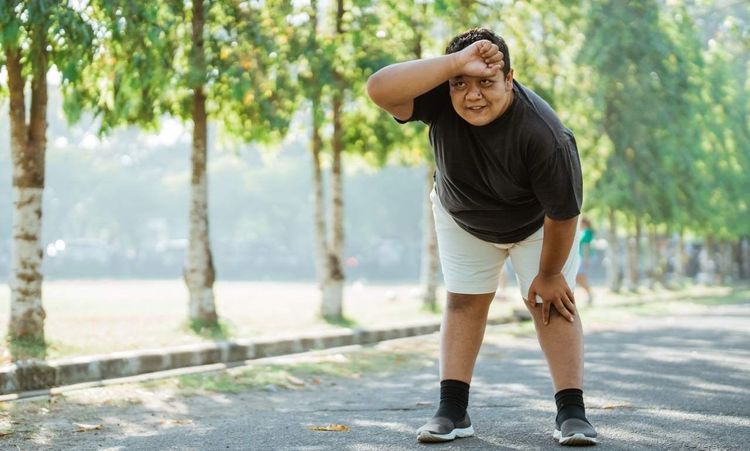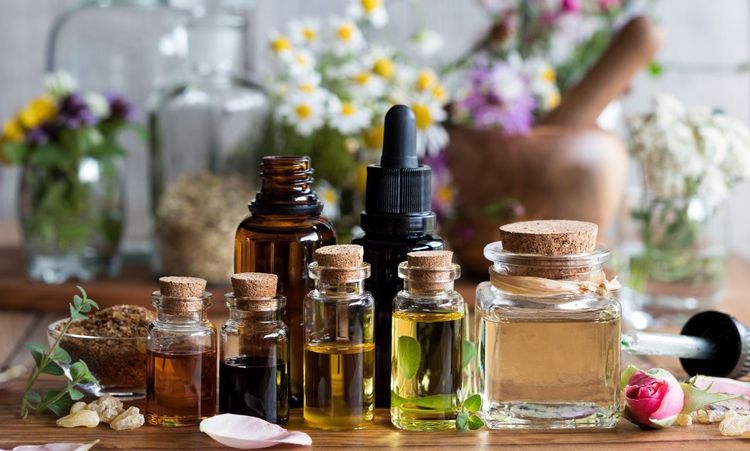If you're a swimmer, you know the struggle of chlorine-induced curly hair all too well. You dive in with sleek, straight locks and emerge with a wild mane of tangles and frizz. Sound familiar?
Don't let pool water ruin your precious curls! In this article, we'll explore precisely how chlorine affects your hair and what you can do to protect those beautiful strands. Get ready to dive into some hair-saving tips!
Why Does Chlorine Make My Hair Curly?
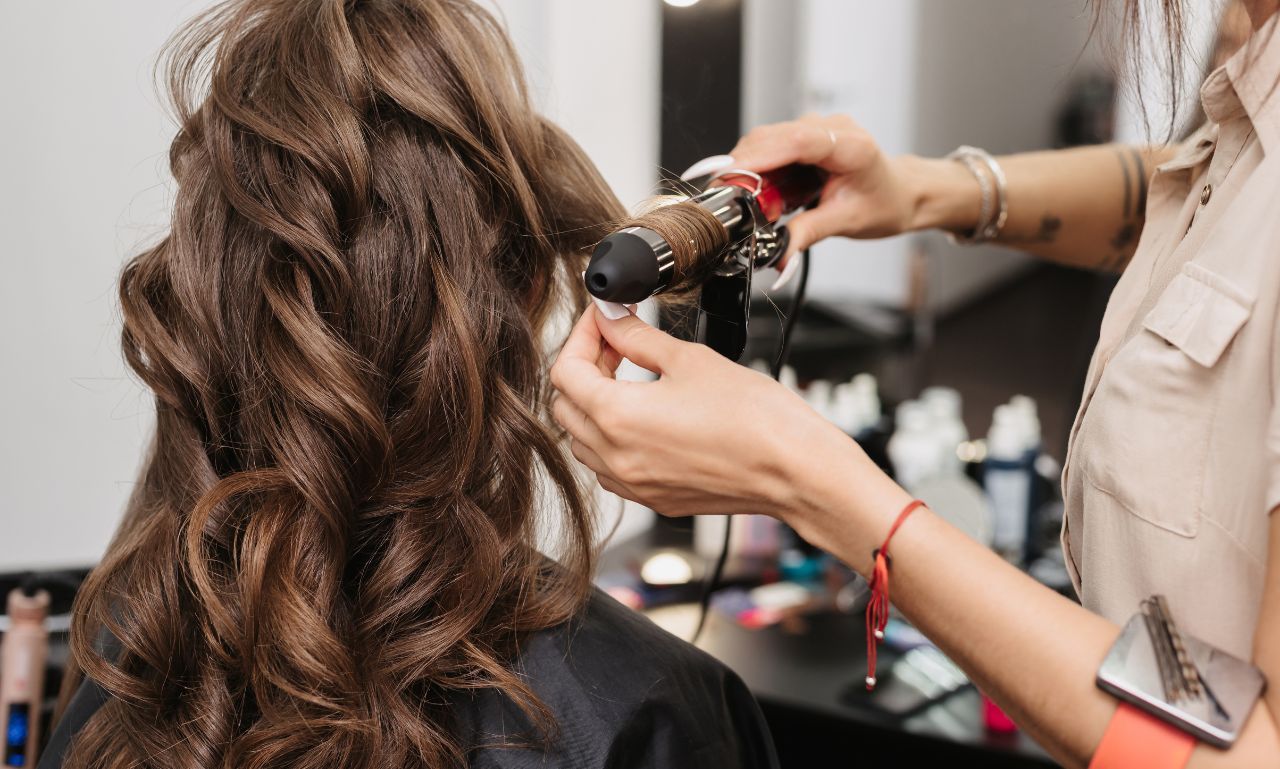
When you dip in a chlorinated pool, the chemicals in the water strip away your hair's natural oils. This protective layer keeps your strands moisturized and smooth. Without it, your hair shaft becomes rough and raised, leading to tangles, dryness, and, you guessed it - unwanted curls and waves.
Chlorine also sneaks into your hair shaft, breaking down the protein structures that keep your locks strong and healthy. Over time, repeated exposure can leave your mane brittle, damaged, and prone to breakage. No wonder your hair feels like a frizzy mess post-swim!
What are the effects of chlorine on your hair?
Besides the dreaded pool hair, chlorine can cause a host of other hair woes:
- Dryness and dehydration
- Split ends and breakage
- Discoloration (hello, green hair!)
- Itchy, flaky scalp
- Loss of shine and vibrancy
The longer you stay in the pool, the more damage chlorine can do. It's like your hair is taking a beating every time you dive in! But don't hang up your swimsuit just yet - we have plenty of tips to keep your locks looking fab.
Does chlorine damage textured hair?
If you have naturally curly, wavy, or oily hair, you might be extra vulnerable to chlorine's effects. Textured hair tends to be drier and more porous, soaking up pool water like a sponge.
This increased absorption leads to even more tangling, matting, and frizz. Your delicate curl pattern can get disrupted, leaving you with a limp, undefined mess. It sounds like a curly girl's worst nightmare!
Can chlorine affect bleached, colored, and chemically treated hair?
Attention blondes and color-treated beauties! Chlorine can be your hair's worst enemy. The chemicals in pool water can react with your dye job, turning your locks a sickly shade of green. Not exactly the summer look you were going for, right?
Bleached and chemically processed hair is also more susceptible to chlorine damage. The harsh chemicals in pools can further weaken and dry out your fragile strands. Unless you want a head full of crunchy, brittle locks, protecting your processed hair before swimming is crucial.
How do I keep my hair from getting knotty in the pool?
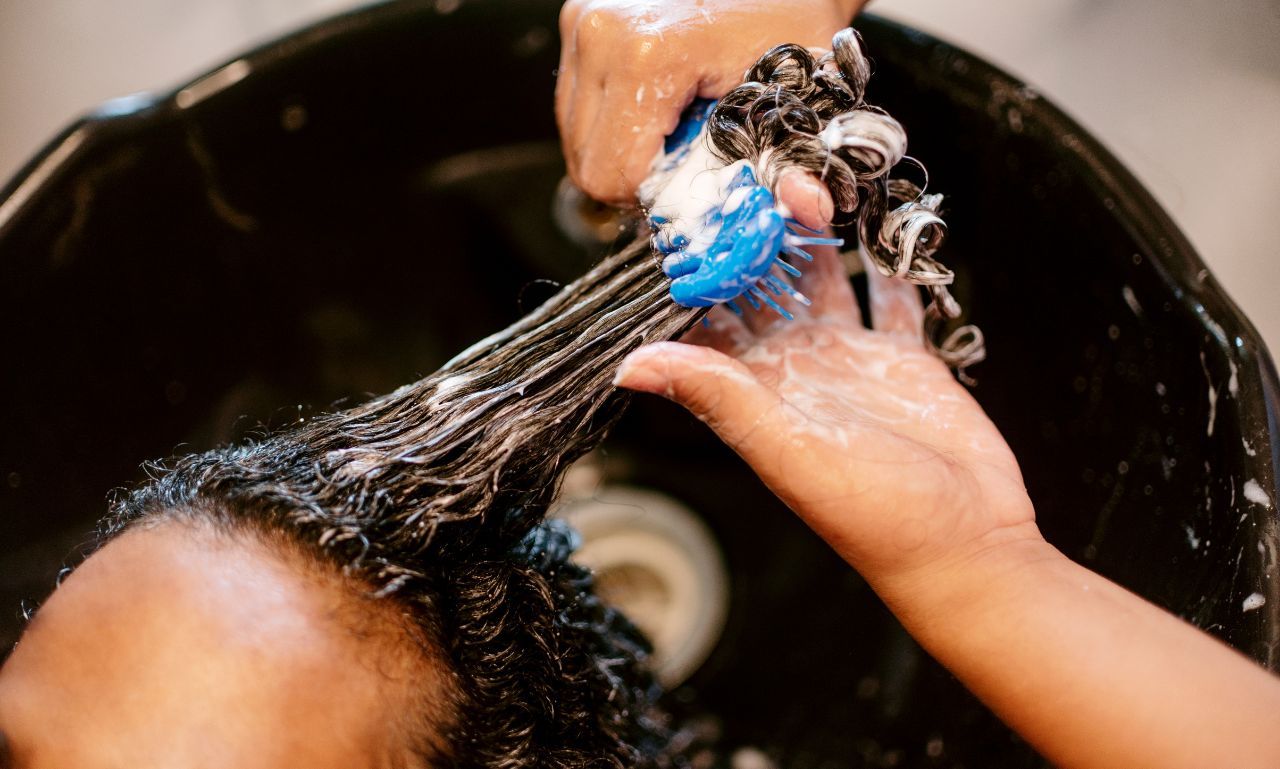
Before diving in, thoroughly wet your strands with clean, non-chlorinated water. This simple step helps prevent your hair from absorbing too much pool water and becoming a tangled disaster.
Next, apply a generous amount of leave-in conditioner or hair oil from roots to ends. This creates a protective barrier against harsh pool chemicals, minimizing damage and tangles. Opt for a silicone-based product for extra staying power in the water.
Finally, throw your hair up in a secure bun or braid before swimming. This keeps your strands tucked away and less likely to become a knotted mess. Plus, you'll emerge from the pool with effortless beach waves!
Does conditioner prevent knots?
While conditioner alone won't completely stop knots and tangles, it's a crucial step in your pre-swim hair care routine. A good leave-in conditioner coats your strands, making them slippery and less likely to intertwine.
Look for conditioners specifically designed for swimmers. They often contain ingredients that help repel chlorine and other harsh pool chemicals. Apply a generous amount before putting on your swim cap for extra protection.
Don't forget to rinse your hair thoroughly with clean water after swimming and follow up with a deep conditioning treatment. Your locks will thank you!
How to fix curly hair after swimming?
So, you forgot to prep your hair before swimming, and now you're dealing with a chlorine-induced curly catastrophe. Don't panic! Follow these steps to get your locks back on track:
- Rinse your hair thoroughly with clean water to remove as much chlorine as possible.
- Shampoo with a clarifying or swimmer's shampoo to gently remove any remaining chemicals and buildup.
- Apply a deep conditioning mask or treatment, focusing on the ends of your hair. Let it soak in for at least 5-10 minutes before rinsing.
- Gently detangle your hair with a wide-tooth comb, starting from the ends and working up to the roots.
- Style as usual, using a leave-in conditioner and curl-enhancing products to revive your natural texture.
With a bit of extra TLC, your curls will bounce back quickly!
What removes chlorine from hair?
The best way to remove chlorine from your hair is to rinse it thoroughly with clean water immediately after swimming. The longer chlorine sits on your strands, the more damage it can do, so don't wait to rinse!
If you still notice a chlorine smell or feel, it's time to bring in the big guns. Clarifying shampoos are specifically designed to remove chlorine, mineral buildup, and other impurities from your hair. Look for shampoos containing chelating agents or sodium thiosulfate, which help neutralize chlorine.
Another option is to use a DIY clarifying rinse made with apple cider vinegar or baking soda. These natural ingredients help remove chlorine and restore your hair's pH balance, leaving it soft and shiny.
Does regular shampoo remove chlorine?
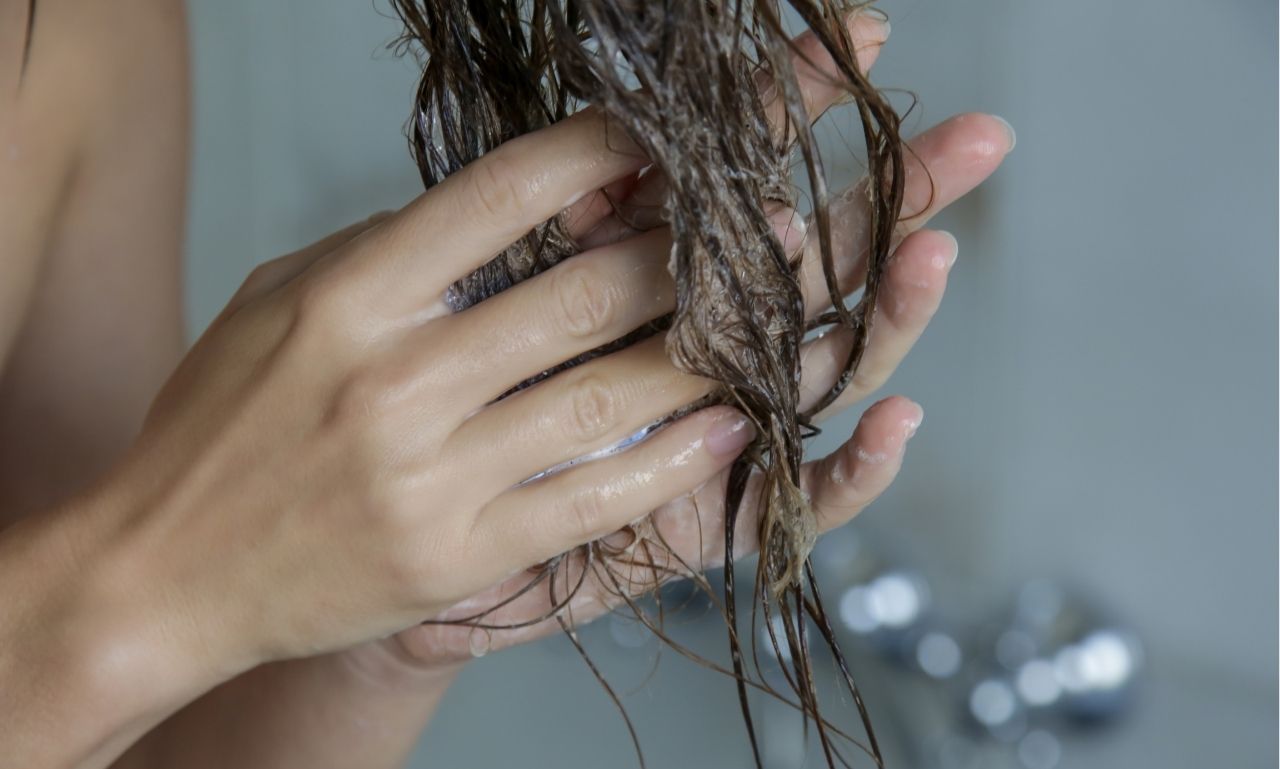
While regular shampoo can help wash away some chlorine, it may not be enough to thoroughly remove all the chemical buildup. Chlorine can stubbornly cling to strands, especially if you have porous or damaged hair.
If you frequent the pool, you must use a clarifying or swimmer's shampoo at least once weekly. These specialized formulas are designed to cleanse your hair and remove any lingering chlorine residue.
If you don't have a clarifying shampoo, try mixing baking soda and your regular shampoo. The baking soda will help boost your shampoo's cleaning power and leave your locks chlorine-free.
How do I protect my curly hair from chlorine?
Curly-haired beauties, listen up! Protecting your delicate strands from chlorine is all about creating a barrier between your hair and the pool water. Here are some tips to keep your curls safe and healthy:
- Soak your hair with clean water and apply a leave-in conditioner or swim cap before diving in. This helps prevent your hair from absorbing too much chlorine.
- To minimize contact with pool water, wear a swim cap or style your hair in a protective style, such as a bun or braid.
- Rinse your hair thoroughly with clean water immediately after swimming, then shampoo with a gentle, sulfate-free formula.
- Deep condition your curls regularly to keep them hydrated and firm. Look for conditioners with nourishing ingredients like coconut oil, shea butter, and protein.
- Style your hair with moisturizing, curl-enhancing products to revive your natural texture and keep frizz at bay.
With some preparation and the right products, you can enjoy swimming without sacrificing your gorgeous curls!
Conclusion
Chlorine may be great for keeping pools clean and safe, but it can wreak havoc on your hair - especially if you have curls! The chemicals in pool water strip away your hair's natural oils, leading to dryness, damage, and unruly tangles.
But don't let the fear of frizz keep you from enjoying a refreshing swim. By taking a few simple steps to protect your hair before diving in and using the right products to cleanse and moisturize afterward, you can minimize chlorine's damaging effects and keep your curls looking their best.
Remember, your hair is unique and may react differently to pool water than your friend's or sister's. Pay attention to how your strands feel and adjust your hair care routine. With a little trial and error, you'll find the perfect combination of products and techniques to keep your curls happy and healthy all summer!
Also Read: Best Hair Oil for Newborn
